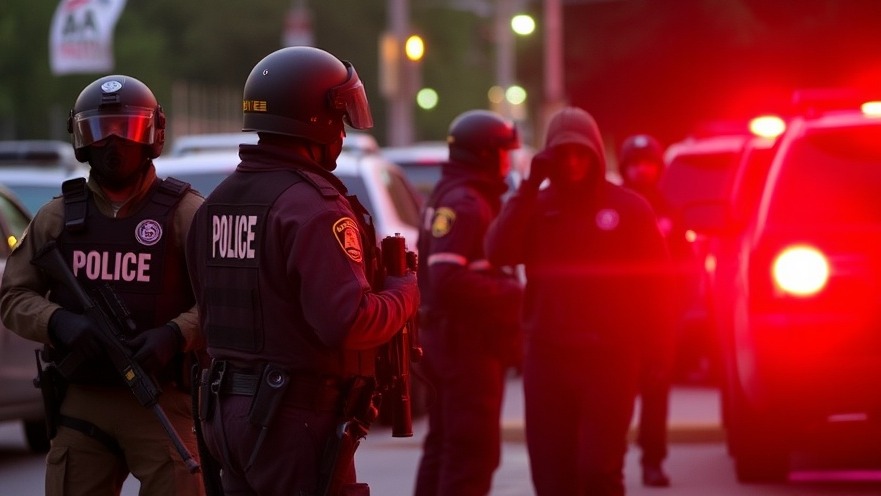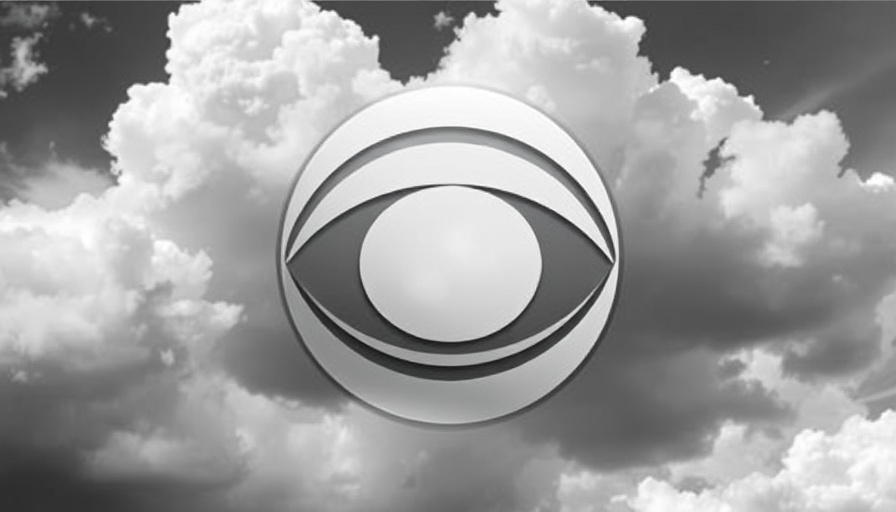
The Rise of Masked Immigration Officers: A New Normal?
In cities across America, an unsettling trend has emerged—a surge in immigration officers conducting raids with their faces concealed. Initially, these masked agents seemed to be isolated incidents, but as of mid-2025, they have become emblematic of a larger immigration enforcement strategy under the Trump administration. This shift has incited both fear and confusion among communities, bringing the implications of such tactics to the forefront of national discussions.
Public Concerns and Legal Implications
Critics argue that this practice undermines the very foundation of accountability in law enforcement. Traditionally, law enforcement has been expected to uphold transparency through means such as wearing identifiable uniforms or body cameras. With these agents obscuring their identities, many citizens are left questioning the integrity and accountability of immigration enforcement. As civil rights groups and politicians stand against this, they emphasize that the public has the right to know who is enforcing the laws in their communities. This sentiment resonates strongly, especially within immigrant communities who often feel targeted by such operations.
A Cultural Reflection: Masks and Identity
The imagery of masked figures is deeply ingrained in American culture—often associated with criminals or vigilantes. This juxtaposition of masked officers operating openly contrasts sharply with societal expectations that law enforcement should be recognizable. The historical context further complicates the narrative, as masks have become symbols of both protection and anonymity. Yet, when agents wear masks during immigration raids, it evokes feelings of distrust and anxiety among some of the public, starkly reminding many of the stereotypes surrounding masked individuals in film and literature.
Decoding Official Justifications
The Trump administration has defended this approach by citing increasing doxxing threats against immigration agents. Acting ICE Director Todd Lyons stated that the safety of officers and their families is paramount. However, this perfectly plausible rationale has met with skepticism. Law enforcement traditionally functions best under an umbrella of accountability, and with the federal agents cloaking their identities, many fear a rapid erosion of civil liberties and public trust.
A Reactionary Stance from the Community
As images of these masked raids circulate in media, public reaction has been mixed. While many support the move as a necessity for protecting law enforcement, others irrationally liken the trend to a worrying shift towards authoritarianism. This ongoing debate raises critical questions about the role of masks in government operations and how such practices might influence public interactions with law enforcement. Community leaders and activists have voiced the sentiment that it's not simply about the tactics used; this is indicative of a larger ideological battle over how laws are enforced and the values of transparency and accountability.
Future Predictions: What Lies Ahead?
The normalization of masked agents could signify a broader trend toward increased opacity in law enforcement practices. As immigration raids continue amid heightened political tensions, the need for public dialogue surrounding these practices becomes increasingly urgent. Moreover, the ramifications extend beyond immigration policy into fundamental discussions about civil rights and democracy. With a clear divide forming between proponents and dissenters of this approach, the discourse surrounding masked law enforcement personnel is poised to evolve rapidly. The outcome potentially reshapes the landscape of accountability and oversight in American law enforcement.
 Add Element
Add Element  Add Row
Add Row 



Write A Comment